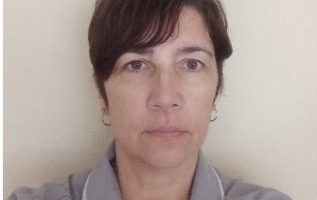Lisa Scott – Newark Primary Care Network

How did you get into being a NA?
I was a Nursing Assistant in a GP practice for 5 years and wanted to gain a higher qualification so that I could improve my job prospects. I had looked into starting the Nursing Associate qualification, but it was too costly at that time.
In October 2018 I was approached by my clinical lead to say that some funding had been made available to complete the Nursing Associate apprenticeship and she asked if I wanted to apply. I immediately said yes and was then on the road to university.
On December 18, 2018 I started my journey to becoming a Nursing Associate.
What do you do as a NA?
As an NA my time is split equally between the GP practices in the Primary Care Network and the Care Homes that are linked to those practices. I mainly work in the community but do, on occasion, have a clinic in the surgery.
We carry out Phlebotomy, Electrocardiagram (ECG), ear irrigation, observations, foot checks, Cytology and data collection for annual reviews (Diabetic, Hypertension, Asthma, COPD, Dementia).
What are the benefits of having an NA to the organisation you work for, the team you work in and the patients?
Having a Nursing Associate in the organisation means that there is a different skill set. We support our Advanced Nurse Practitioners, Dieticians and GP practice staff by providing urgent services such as Phlebotomy when needed. Our housebound and care home patients are now able to access annual reviews, Cytology, Electrocardiagrams (ECG’s) and ear irrigation and many other services in the comfort of their own home or the care home. These are services which previously were difficult for patients to access due to being unable to get into the surgery, so we’re making NHS services more accessible for the most vulnerable patients.
What are the challenges you face?
I think the main challenge I found was other clinicians did not really know what the Nursing Associate skill set was and what they could do. I needed to explain and demonstrate how I supported the multi-disciplinary team.
What advice would you give to anyone wanting to become a TNA/NA?
I would say ‘go for it’! The university course is very good, and I found that gaining the underpinning knowledge was beneficial. It made me look at the patient holistically and improved the quality of care I was giving.
I found the placements were brilliant. I had placements in Emergency Departments, a Prison, and the community, which gave me a full insight into all the different areas of care.
The course is not easy by any means and takes hard work and determination to complete, but you get as much support as you need, and you make friends that will be with you for life.